Endeavor Retires After Anticipating the Future
Posted on September 23, 2012
Filed Under Government, Technology | Leave a Comment
 Endeavor and its Astronaut crews were stars alright. A NASA photo distributed by the Associated Press shows the space shuttle, atop a NASA 747 jumbo jet, flying over the Hollywood sign as it approached Los Angeles International Airport on Friday. There, Endeavor will be prepared for a 12-mile road trip to the California Science Center, where it will go on permanent display.
Endeavor and its Astronaut crews were stars alright. A NASA photo distributed by the Associated Press shows the space shuttle, atop a NASA 747 jumbo jet, flying over the Hollywood sign as it approached Los Angeles International Airport on Friday. There, Endeavor will be prepared for a 12-mile road trip to the California Science Center, where it will go on permanent display.
Friday’s flight from Edwards Air Force Base in the Mojave desert came after Endeavor tallied 123 million miles in 25 trips into low-Earth orbit. We all can recall some of those launches in straight-up blasts atop a carrier rockets. The last one was on May 16, 2011 with Endeavor under the command of Mark Kelly, the husband of Rep. Gabrielle Giffords. Endeavor replaced the Challenger shuttle which exploded during liftoff in 1986.
Read more
Comments
Bill Bryson’s ‘Manual’ on Creation
Posted on September 14, 2012
Filed Under Communication, Technology, The Writing Life | Leave a Comment
We’ve always been pleased to have Bill Bryson’s 2003 book, A Short History of Nearly Everything, in our library, and now we intend to set about reading it cover-to-cover. That resolve comes after revisiting Bryson’s engaging treatment of “The Reverend Evans’s Universe” near the book’s start.
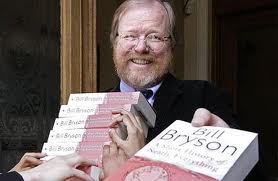 You won’t find a more engaging introduction to the truly awesome death of supernovae far out, very fortunately, in the universe. Nor will you find many other places (including, however, the works of John McPhee) that offer such helpful clues to engaging technical writing. That’s right, technical writing can be at least somewhat engaging, without ceasing to be accurate, informative and helpful.
You won’t find a more engaging introduction to the truly awesome death of supernovae far out, very fortunately, in the universe. Nor will you find many other places (including, however, the works of John McPhee) that offer such helpful clues to engaging technical writing. That’s right, technical writing can be at least somewhat engaging, without ceasing to be accurate, informative and helpful.
Read more
Comments
An ‘Atwater Kent’ Geiger Counter
Posted on September 6, 2012
Filed Under Uncategorized | Leave a Comment
Now, here’s a technical novelty. John Baichtal, community manager at the Make blog and magazine, features a homemade geiger counter that looks like an “old-timey cathedral radio with a detachable wand,” rather than the usual metal box with a dial on it.
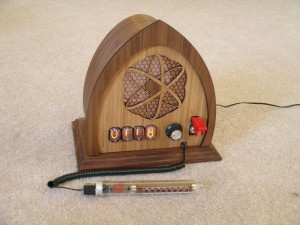 It’s a beautiful job, we think you’ll agree. Geiger counters like this would add some serenity to a few nuclear power plants we know. It was made by somebody with the web moniker “moustachenator.” But all we can find out about him (we presume, but maybe we shouldn’t) on YouTube is that he’s apparently 65 and lives in the U.S. The “count” numbers flash on nixie tubes.
It’s a beautiful job, we think you’ll agree. Geiger counters like this would add some serenity to a few nuclear power plants we know. It was made by somebody with the web moniker “moustachenator.” But all we can find out about him (we presume, but maybe we shouldn’t) on YouTube is that he’s apparently 65 and lives in the U.S. The “count” numbers flash on nixie tubes.
The builder details the 12 steps that were involved in creating this antique-looking counter. Congratulations to “moustachenator” the maker, indeed! – Doug Bedell
Comments
Your Aim: Enlightenment, Not Punishment
Posted on August 28, 2012
Filed Under Communication, The Writing Life | Leave a Comment
We were browsing the web for ideas and came upon a post on the Accidental Remediation blog by Short Geologist. All we can discover about Short Geologist is that she’s a woman, but from her post anyway, a wise one.
 SG has “a mania for clear, concise technical writing.” How do you get to that exalted state – a producer of clear, concise technical writing? Remember one thing, SG advises: “This isn’t high school, where you’re trying to pad your 11th-hour essay to fit the word count. Nobody cares how big your words are – and if they’re too big, perhaps it’s time to abbreviate. Remember, you’re writing to communicate, not punish the reader!”
SG has “a mania for clear, concise technical writing.” How do you get to that exalted state – a producer of clear, concise technical writing? Remember one thing, SG advises: “This isn’t high school, where you’re trying to pad your 11th-hour essay to fit the word count. Nobody cares how big your words are – and if they’re too big, perhaps it’s time to abbreviate. Remember, you’re writing to communicate, not punish the reader!”
Read more
Comments
Automate Your Writing? Not Really, but Here’s a Useful Indicator
Posted on August 16, 2012
Filed Under Communication, Technology, The Writing Life | Leave a Comment
Here’s a throwback to awareness in the present that technical writers – indeed, anyone who writes seriously – might appreciate. Wiley Brooks on the Business2Community site reminds us of Rudolf Flesch’s algorithm-based readable writing tool. Drop in a body of text, press the button and get your score for clear writing. Wow!
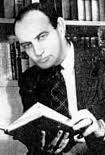 Flesch, Brooks notes, was a lawyer and refugee from Nazi Germany who “earned a Ph.D. in English at Columbia University, and then became a prominent professor there.” He’s pictured here.
Flesch, Brooks notes, was a lawyer and refugee from Nazi Germany who “earned a Ph.D. in English at Columbia University, and then became a prominent professor there.” He’s pictured here.
Read more
Comments
Eureka! Solid Planning and Performance Returned Us to the Moon! Is that Any Surprise?
Posted on August 8, 2012
Filed Under Technology | Leave a Comment
We know of a guy, typical of many, probably, who didn’t think it was smart for NASA to make a movie of Curiosity’s Mars landing before it was actually accomplished this week. “It is beyond my limited capacities,” he wrote, “to understand all that went into building and sending the vehicle on its 154 million mile journey. Then, to choose a never-tried, highly complex method of reaching and lowering the vehicle to the surface of the planet is a definition of insanity. Except they did it.”
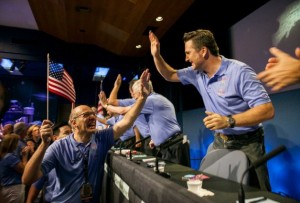 Indeed so. That meticulous planning and procedures should work in the riskiest of settings isn’t so surprising, if you plan for the riskiest of settings. It’s all in your vision – in this case, NASA’s vision – and the care you take to accomplish it. Technology is controllable, even from a mind-boggling distance, if you plan and execute to make it controllable.
Indeed so. That meticulous planning and procedures should work in the riskiest of settings isn’t so surprising, if you plan for the riskiest of settings. It’s all in your vision – in this case, NASA’s vision – and the care you take to accomplish it. Technology is controllable, even from a mind-boggling distance, if you plan and execute to make it controllable.
Read more
Comments
The Coming ‘Contextual Age’ – Technology Will Be Tracking Us
Posted on August 5, 2012
Filed Under Technology | Leave a Comment
Robert Scoble describes the new book he’s working on with Shel Israel as though it will be a little scary, and that’s a credit to the authors’ sensibilities. For the dawning “Age of Context,” Scoble’s announced title for the book, is definitely at least ominous. Various electronic devices which, one by one, most of us prize will be tracking and reporting on our locations and who knows what else. (That’s where the scary part comes in.) It sounds like it will be an age of observing, and a rather personal one.
 The new age, as anticipated by Scoble on the Business Insider blog, will be “topped” by wearable computers like Google Glasses and various beaming cell phones. (There’s likely a smaller iPad coming, too – this fall.) Data bases in the “cloud” will be storing whatever they collect, maybe forever.
The new age, as anticipated by Scoble on the Business Insider blog, will be “topped” by wearable computers like Google Glasses and various beaming cell phones. (There’s likely a smaller iPad coming, too – this fall.) Data bases in the “cloud” will be storing whatever they collect, maybe forever.
Read more
Comments
Olympic Competition Enhanced By the Gear Involved
Posted on July 27, 2012
Filed Under Technology | Leave a Comment
Enjoy the London Olympics over the next week, but recognize that they’re not absolutely “fair” in terms of achieved technological advantages, any more than the rest of sports, down to the Little League level.
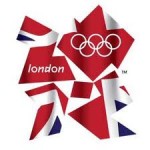 Craig Chamberlain on the Phys.org blog writes that competition in sports is as much between the scientists and engineers who produce athletic equipment as the athletes themselves. “In sport,” says Rayvon Fouché, a historian of technology at the University of Illinois and a former cyclist, “there’s very little incentive to play fair, and there are huge incentives to try to get an advantage.” The real distinction, he adds, is between legal and illegal advantages. Fouchè is working on a book about sports technology and the future of athletic competition.
Craig Chamberlain on the Phys.org blog writes that competition in sports is as much between the scientists and engineers who produce athletic equipment as the athletes themselves. “In sport,” says Rayvon Fouché, a historian of technology at the University of Illinois and a former cyclist, “there’s very little incentive to play fair, and there are huge incentives to try to get an advantage.” The real distinction, he adds, is between legal and illegal advantages. Fouchè is working on a book about sports technology and the future of athletic competition.
Read more
Comments
Mind-Mapping as a Research and Retrieval Tool
Posted on July 19, 2012
Filed Under Communication, Technology | 1 Comment
We’re all adept note-takers, but we’re not necessarily adept note-retrievers. While computers encourage note-taking and data-collecting, they don’t necessarily make the retrieval of collected data a joy. Technical writers can testify to that.
The retrievability of information has to do not only with our computer’s storage whims, but with our own brains. We like patterns and relationships, not simply stuffing material away, even in electronic form. That’s why I’m big on the filing technique known as mind-mapping; it’s a great organizing and retrieval tool.
Read more
Comments
A Writing Blogger Who Has It Right
Posted on July 13, 2012
Filed Under Communication, Technology, The Writing Life, Uncategorized | Leave a Comment
Friday the 13th has turned out to be my lucky day, in a tradesman’s sense, at least. I’ve just come upon John Graham-Cumming’s blog on technical writing and it’s great to have discovered a kindred spirit who reaffirms what little I thought I knew about writing. To the fullest.
 Graham-Cumming is a British computer programmer and writer. His pointers are right on the mark: Practice, Read, Listen to Editors, Think about writing, Think about the reader, Plan and Dream. That’s it, and it’s plenty.
Graham-Cumming is a British computer programmer and writer. His pointers are right on the mark: Practice, Read, Listen to Editors, Think about writing, Think about the reader, Plan and Dream. That’s it, and it’s plenty.
Writing is a discipline, but a hazy one. There are explicit things to do, yet inspiration comes first, and that’s where the dreaming comes in. Technical writers have it over their more creative colleagues in this respect, because their material is relatively “dictated,” it’s permissible parameters are clearer. Yet writing well always involves reflection and rededication, whatever the subject assignment. Hence the dreaming factor.
Read more
Comments
Recently
- Presentations With Forethought
- Technical Writing’s Lineage – Surely It’s Deeper than Digital
- At the Holidays, Twitting Amazon
- Successful Cookie Baking – From Mom, an Acknowledged Expert
- Slides for a Tech Writer’s Craft
- Digital or Not, Be Clear
- Being Watchful About Digital Designs…
- When Proposals Don’t Click, Keep Making Them Anyway
- Like a Good Gardener, Help an Enterprise Keep Itself Current
- We’re Leaders All, And Need to Think That Way
Categories
Archives
- January 2017
- December 2016
- November 2016
- October 2016
- September 2016
- August 2016
- July 2016
- June 2016
- May 2016
- April 2016
- March 2016
- February 2016
- January 2016
- December 2015
- November 2015
- October 2015
- September 2015
- August 2015
- July 2015
- June 2015
- May 2015
- April 2015
- March 2015
- February 2015
- January 2015
- December 2014
- November 2014
- October 2014
- March 2014
- February 2014
- January 2014
- December 2013
- November 2013
- October 2013
- September 2013
- August 2013
- July 2013
- June 2013
- May 2013
- April 2013
- March 2013
- February 2013
- January 2013
- December 2012
- November 2012
- October 2012
- September 2012
- August 2012
- July 2012
- June 2012
- May 2012
- April 2012
- March 2012
- February 2012
- January 2012
- December 2011
- November 2011
- October 2011
- September 2011
- August 2011
- July 2011
- June 2011
- May 2011
- April 2011
- March 2011
- February 2011
- January 2011
- December 2010
- November 2010
- October 2010
- September 2010
- August 2010
- July 2010
- June 2010
- May 2010
- April 2010
- March 2010
- February 2010
- January 2010
Blogroll